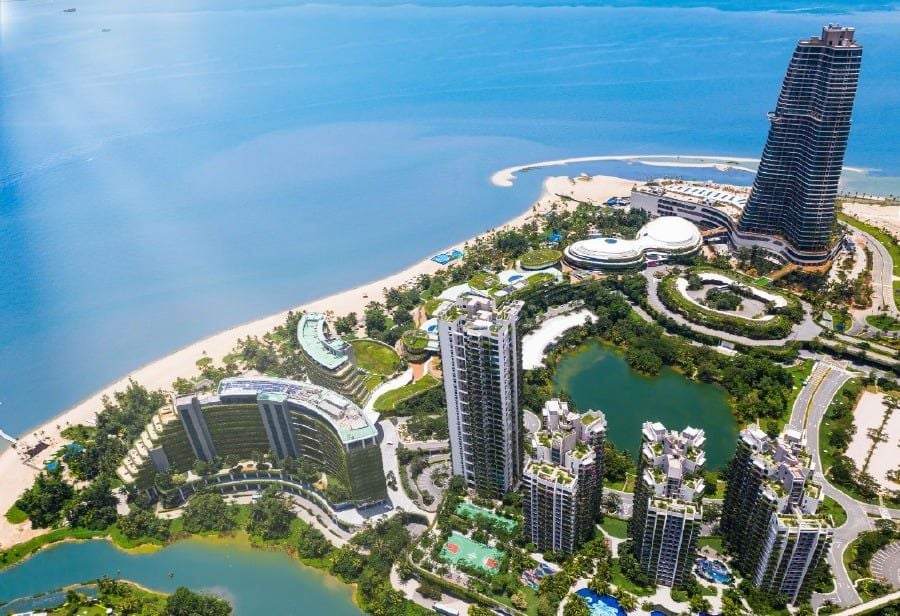By Sharen Kaur
KUALA LUMPUR: The incentives announced for Johor’s Forest City Special Financial Zone (Forest City SFZ), including tax breaks and benefits for family offices, reflect a strategic vision to attract global capital and strengthen Johor's position as a financial hub, according to Knight Frank Malaysia.
"We see this as a pivotal moment for Johor's growth. We fully support these efforts," the firm said.
Located in Iskandar Puteri, Forest City spans four man-made islands covering 30 square kilometers. Developed by Country Garden Pacificview Sdn Bhd, a joint venture between Country Garden Group and Malaysia-government-backed Esplanade Danga 88 Sdn Bhd, the project represents a US$100 billion investment.
On August 23, 2024, Prime Minister Datuk Seri Anwar Ibrahim announced the creation of an SFZ within Forest City. Last week, Malaysia’s Second Finance Minister Datuk Seri Amir Hamzah introduced a series of targeted incentives for key sectors within the zone.
As a duty-free island, Pulau Satu in Forest City will focus on financial services, while the mainland will prioritize logistics, global service hubs, and relocation services. The planned Kuala Lumpur-Singapore high-speed rail, currently under discussion, is also expected to pass through Forest City.
Key incentives include corporate tax rates of 0% to 5%, a 15% individual income tax rate, 0% tax for family offices, 5% tax for global financial services, and expanded foreign bank operations with foreign exchange flexibility within the SFZ.
These incentives align with the broader objectives of the Johor Singapore Special Economic Zone (JS-SEZ) and Johor’s goal to achieve developed state status by 2030. UOB noted that these measures are designed to ignite initial interest and position Forest City SFZ as a global financial hub.
The bank highlighted that the JS-SEZ will be closely integrated with Forest City SFZ, driving investment, job creation, and development in Johor.
"Key incentives that span 20 years (10 + 10 years) are conditional on operations expanding by at least 30 per cent, covering operating expenses, number of key personnel, number of knowledge workers, and ESG elements. As such, the outcome-driven incentives are designed to attract new investments and reward expansionary activities that invest and grow the skilled workforce as well as enhance sustainability efforts," the firm said in a note today.
UOB also noted that the incentives are more attractive than typical offerings, which usually last five to 10 years. For qualifying sectors such as logistics, the investment tax allowance is 100% to offset statutory income, compared to the usual 60%.
Looking ahead, UOB pointed to Budget 2025, expected next month (October 18), and the final JS-SEZ agreement, set to include broader incentives for non-financial sectors by November.
Meanwhile, RHB Research highlighted the potential positive spillover from the Forest City SFZ incentive packages on Iskandar Malaysia, predicting increased demand for property, commercial, and retail activities.
If the regulatory and infrastructure ecosystem is well-established, RHB said, the push for family offices makes sense given Forest City’s proximity to Singapore, a regional hub for family offices.
"Incentives for other financial institutions and logistics sectors should also attract investments into Forest City, creating more job opportunities," it said.

No comments:
Post a Comment